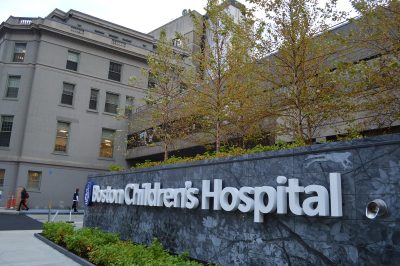
Two young children in Boston have contracted meningococcal disease, according to a public health advisory issued by Boston Mayor Martin Walsh and the Boston Public Health Commission Wednesday.
“Both cases have been associated with day care centers specializing in serving children who have experienced homelessness,” the health advisory stated. “However it is not currently known if the two cases are connected.”
Bacterial meningococcal disease is an infection spread through the saliva or via prolonged physical contact, according to the Centers for Disease Control. It is less contagious than the common cold or influenza and is not spread through casual contact or breathing the same air as an infected individual.
Boston 25 News reported that one of the children who contracted the disease is undergoing treatment in the intensive care unit at Boston Children’s Hospital. The 20-month-old child, Lucas Cook, is currently in a medically induced coma and may experience damage to his brain, kidneys and limbs.
There are several different forms of meningococcal disease, including meningitis, which occurs when the disease spreads to blood, brain and spinal cord, according to the health advisory. Once discovered, it is extremely important to begin antibiotic treatment as soon as possible to increase chances of survival.
Bacterial meningococcal disease is caused by the bacterium Neisseria meningitidis, according to the CDC. While other forms of meningitis exist, such as viral or fungal meningitis, bacterial meningitis tends to be the most severe.
Even with antibiotic treatment, 10 to 15 percent of people who contract bacterial meningococcal disease will die and around one in five will experience long term disabilities, according to the CDC. These disabilities include deafness and brain damage.
Those who may have been at risk for infection due to these recent cases have been identified and prescribed preventative antibiotics as a precautionary measure, according to a statement from the mayor’s office. No other cases have been identified since Oct. 18.
While meningococcal disease is treatable, it is imperative to seek medical treatment as soon as symptoms occur, which can take up to 10 days of exposure after exposure but generally appear after four, according to the health advisory.
Symptoms usually develop quickly and may include fever, headache, stiff neck, sensitivity to light, nausea, vomiting and mental status or confusion, according to the health advisory.
Luckily, the disease has shrunk in prevalence over the years, according to the health advisory, with only 10 to 15 cases reported yearly across Massachusetts. Most common forms of meningococcal disease can also be prevented by a vaccine.
The mayor’s health advisory encouraged people to speak with their healthcare provider about vaccination options and urged residents who may have been in close contact with someone who does have the disease to contact their healthcare provider immediately for screening and preventative antibiotics.
Meera Singh, 18, of Chinatown, said she thinks the best way for residents to protect themselves from these diseases is to make sure they are properly vaccinated.
“People just need to get their vaccines,” Singh said.
Shelby Mathers, 43, of Allston said she was worried that these cases might lead to an outbreak in Boston.
“They should make sure those kids are alone,” Mathers said, “some kind of quarantine.”
Sandra Freeman, 69, of Allston said she was worried for the safety of the affected children.
“I’m praying for those children,” Freeman said, “they sound like they’re going to need it.”


















































































































